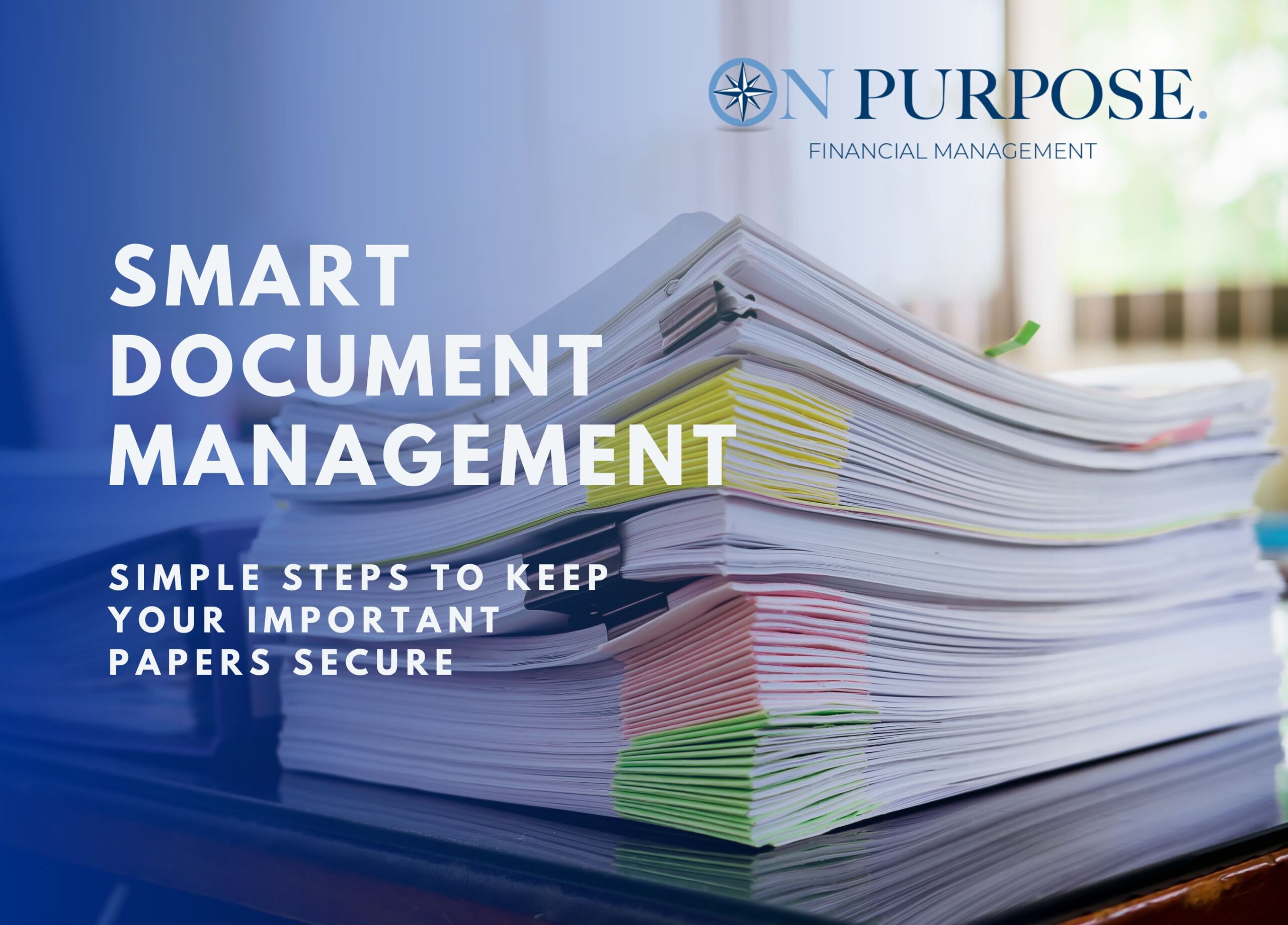Smart Document Management

Simple Steps to Keep Your Important Papers Secure
In today’s fast-paced world, it’s easy to lose track of important documents. Whether it’s tax returns, investment records, or legal papers, having a plan for organizing and securing your documents can make a big difference. Effective document management saves you time, reduces stress, and protects your personal information from identity theft.
Why Document Management Is Important
Over time, we all accumulate paperwork—some of it essential and some outdated. Knowing what to keep, where to store it, and when to securely dispose of it is key to staying organized and prepared. Here are some basic reasons why managing your documents is crucial:
- Peace of Mind: Having your documents well-organized means you’ll know exactly where to find them when you need them.
- Security: Keeping your personal information secure protects you from identity theft or fraud.
- Efficiency: An organized filing system saves time and hassle when it comes to accessing important records for taxes, financial planning, or legal matters.
Check out more information at Raymond James website
Tips for Effective Document Management
- Sort and Organize: Start by gathering all your important documents and sorting them into categories like financial, legal, and personal. Use folders or binders to keep them separated and easy to find.
- Store Important Documents Safely: Invest in a fireproof and waterproof safe to store original documents such as wills, property deeds, Social Security cards, and insurance policies. This will ensure that your most valuable papers are protected from potential damage.
- Go Digital: Digitizing your important documents is another layer of protection. Scan copies of your documents and save them to a secure cloud storage service. Not only does this reduce physical clutter, but it also gives you access to your papers from anywhere with an internet connection.
- Shred Unnecessary Documents: For papers you no longer need, such as old bank statements or outdated bills, make sure to shred them to prevent your personal information from falling into the wrong hands. Avoid simply throwing away sensitive information like account numbers or Social Security details.
- Review and Update Regularly: Make it a habit to review your document management system at least once a year. Remove any papers that are no longer needed and update files with the most recent versions.
What Documents Should You Keep?
To avoid unnecessary clutter, it’s important to know which documents you need to hang on to and for how long. Here’s a general guideline:
Shred Immediately: Outdated credit card statements, old utility bills, and anything with sensitive information that’s no longer relevant.
Keep Forever: Birth certificates, wills, Social Security cards, legal documents, and insurance policies.
Keep for 7 Years: Tax returns, medical bills, and investment statements.
DOWNLOAD: Document Shredding Checklist
Local Shredding Event
If you have a pile of papers ready to be shredded, there’s a shredding event in Fayetteville on October 19th where you can safely dispose of your old documents. For more details, check out the event page here.
Taking the time to set up a smart document management system can simplify your life and ensure your important information is always secure and accessible. For more tips on managing your finances and staying organized, feel free to reach out to On Purpose Financial Management. We’re here to help you stay on track with your financial goals!
Any opinions are those of the individuals stating them and not necessarily those of RJFS or Raymond James. The information contained in this report does not purport to be a complete description of the securities, markets, or developments referred to in this material. There is no assurance any of the trends mentioned will continue or forecasts will occur. Any information is not a complete summary or statement of all available data necessary for making an investment decision and does not constitute a recommendation. Investing involves risk and you may incur a profit or loss regardless of strategy selected.
